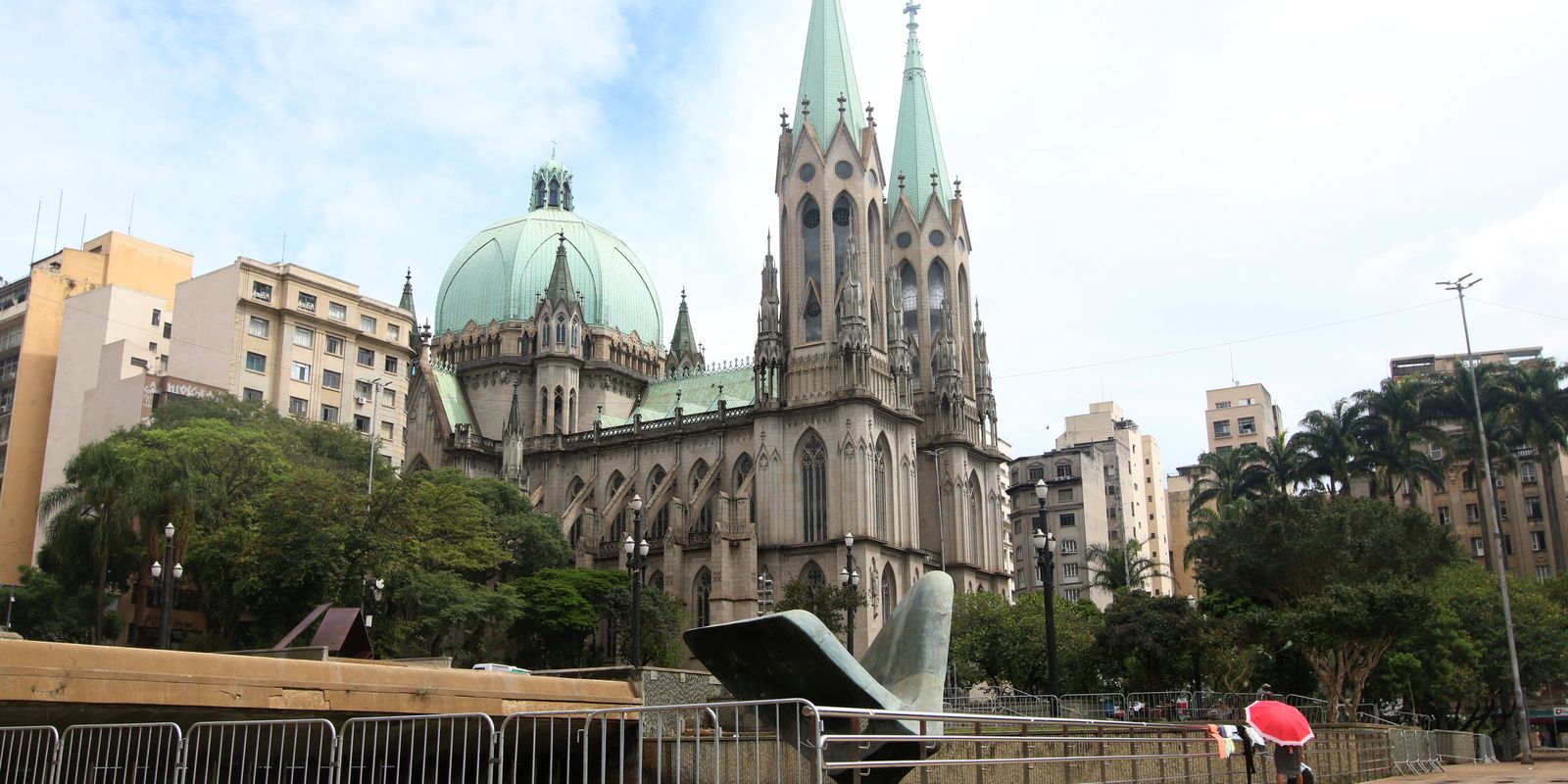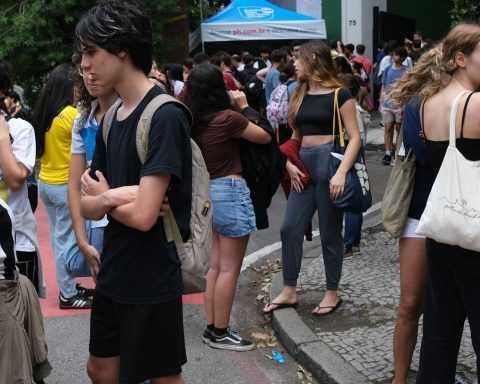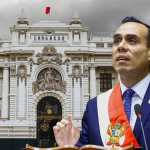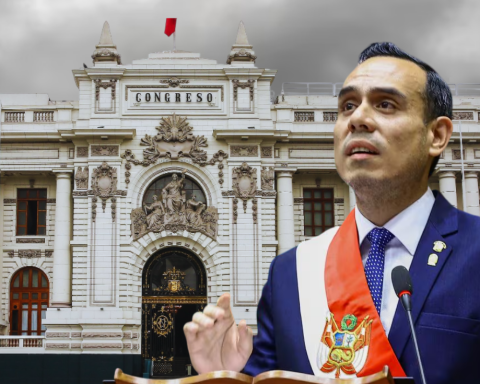The so-called “Batalha da Sé”, or “Flock of Green Galinhas”, which took place in the capital of São Paulo on October 7, 1934, turns 90 years old this Monday (7). On that date, a large contingent of integralists, the version place of fascism, he was expelled from the center of the capital. Although little known, the episode was significant in the country’s history, defining the direction of politics, then under the presidency of Getúlio Vargas.
One of the most important books by Marxist historian Eric Hobsbawn, entitled The age of extremesdeals with the political movements of the last century – a time of extreme political experiments, on all sides. among the main ones, the Nazi-fascism of Hitler and Mussolini, respectively in Germany and Italy, and the socialism of Stalin, in the former Soviet Union.
The tensions between such distinct ideological lines were not limited to European limits, but were reproduced on other continents. In Brazil it was no different. The Batalha da Sé united groups of socialists, anarcho-syndicalists, communists and democrats in general, from various currents against around 8 thousand people from Ação Integralista Brasileira (AIB), led by Plínio Salgado.
The battle ended with one death, the young communist leader Décio de Oliveira, as well as several injuries, including among the police forces aligned with the integralists, who were called green chickens because of the color of the uniform they wore in their marches and rallies. Set to run, the integralists fled through the streets of São Paulo, leaving a trail of shirts scattered across the streets.
When reporting the event, the People’s Newspaperby the comedian Barão de Itararé (or Apparício Torelli), published on its cover a headline that would become famous: “An integralist doesn’t run: he flies”.
To explain and contextualize the Praça da Sé movement, the Brazil Agency interviewed the professor at the University of Campinas and researcher at the University Paris-Cité, the sociologist Fabio Mascaro Querido.
Brazil Agency: In your opinion, how important was the episode for national politics during that pre-Vargas dictatorship period?
Fabio Mascaro Querido: the so-called Flock of Green Chickens was, without a doubt, one of the most emblematic events of Brazilian anti-fascism. On October 7, 1934, several different groups and political currents, such as the PCB, the PSB, the anarchists and, with notable emphasis, the Trotskyists of the Internationalist Communist League, joined together in the fight against a common enemy. And they did so through direct action, literally sending AIB activists – the “green chickens” – who were carrying out an act there to run, in the middle of Praça da Sé.
At the time, the counter-demonstration was important for national politics because, among other things, it contributed to the weakening of the AIB. By showing the anti-fascist strength of organized workers, the episode helped to demotivate Vargas’ attempt to use the AIB to accelerate the process of establishing an authoritarian regime, which would in fact happen from 1937 onwards, with the Estado Novo, but without the participation of integralists.
Brazil Agency: Integralism was a considerable political force at the time, following the path of Nazism in Germany and Italian fascism. What do you consider to be the main difference in the right-wing extremist model in Brazil and its European equivalents (if there is such a difference)?
Fabio Mascaro: the Integralism was a “nationalized” version of European fascism. In a way, he had the merit of transforming fascism into an effectively Brazilian ideology. Integralists, especially Plínio Salgado, constructed a more or less coherent narrative of what Brazil was (and should be). It can be said that integralism was fascism on the periphery of capitalism. In his own way, he was part of the modernizing discourse that, at the time, was shared by almost everyone, including the left. European fascism, in turn, is, rather, an expression of the paradoxes of modernity, of progress that has transformed into barbarism, not in the sense of a simple regression, but rather in the sense of a modern barbarism, which has industrialized death itself. In common, all these versions of fascism, in Brazil or Europe, present themselves as the last resort of a system for which liberal democracy has become incapable of guaranteeing its smooth reproduction.
Brazil Agency: Is it possible to establish any parallel between the rise of right-wing extremism in the first half of the last century and that seen today, in these first decades of the 21st century?
Fabio Mascaro: There are some parallels, but also important differences. Historical fascism, let’s say, in Italy or Germany, had a project of radical subversion of status quoin order to impose new establishing power. Hence the permanent mobilization (and violence), as well as the identification of internal enemies: Jews, communists, gypsies, etc.
Much of this is present in the contemporary far right, but with some nuances. In general, today’s extreme right (at least the one with hegemonic aspirations) plays within the limits of democratic rules, pushing their margins to the maximum, but without, for now, considering the possibility of building a new social system. It is worth remembering, in any case, that even Nazism, in its early years, presented an institutional facade before assuming its coup and totalitarian inclination. It stands as a warning – or a fire alarm, to put it like Walter Benjamin – for the fight against the current extreme right: we know how it begins, but not how it ends.
Brazil Agency: What degree of concern should defenders of democratic regimes have with the current new reactionary wave? Or is this something temporary?
Fabio Mascaro: the concern must be total, but without falling into catastrophism. The threat is real and is already being felt in several countries, including Brazil. Unfortunately, the problem is far from temporary. The far right feeds on a social crisis that is real and whose causes are structural. But the solution it presents not only does not resolve the identified problems, it also radicalizes them, a situation in which political and social violence proves necessary. Proclaiming itself against the “system”, the extreme right actually represents the guarantee that the system (capitalism) will continue to work, whatever the cost.
This does not mean, however, that the rise of the far right is inevitable. It is a political phenomenon that, as such, can be defeated, which depends on the ability of the forces that call themselves democrats to present another solution – structural – to the civilizational crisis we are experiencing.
Brazil Agency: Why is the left no longer able to seduce a large portion of the population, especially young people, unlike in recent decades?
Fabio Mascaro: here is a good part of the explanation for the rise of the extreme right: the decline in the capacity of the left, social and political in general, to dialogue with sectors of society that once made up their social bases. There are several aspects that explain this process: rise of neoliberalism, changes in the world of work, shortening of the horizon of expectations, etc. In this scenario, the left – subjected to various types of pressure – tended to settle into a defensive position, often focusing on societal or identity issues. Fundamental issues, without a doubt, but whose prominence in the face of broader social and economic struggles left the left orphans of an alternative societal project. That is why today, paradoxically, it is the extreme right that presents itself, for many people, as the true alternative to “everything that is there”.
Brazil Agency: Does the resurgence of reactionary extremism reveal an exhaustion of the current political-party model? How to do politics?
Fabio Mascaro: without a doubt. In Brazil and several other countries around the world, the last few decades have demonstrated a disconnection of the political system in relation to those who, in theory, it should represent. In Europe and the United States, the fact that, in the last two or three decades, the main parties (on the traditional left and right) have pursued the same (neoliberal) economic policy has strengthened the feeling in significant portions of society , including within the popular classes, that politicians are all the same, that politics is a deception, and so on. In Brazil the situation is relatively unique, especially due to the first Lula governments which, even without breaking with neoliberalism, strengthened attention to the poorest. This is what explains why, unlike the European, for example, the Brazilian extreme right demands, without complexes, a pure and hard neoliberalism.
Brazil Agency: As in the past, the media played an important, if not fundamental, role in the rise and growth of fascism. Is it possible to blame new forms of communication, especially digital social networks, for the resurgence of right-wing extremism in the world?
Fabio Mascaro: the main responsibility of the media lies in the way they “normalize” issues raised by the far right. This mechanism is amplified in the so-called contemporary social networks, in whose cacophony the far right makes no bones about it. But, just as important as analyzing the responsibility of the media is understanding what makes people willing to embrace the ideas presented. There is an active stance there, which is different from mere ignorance. To combat these ideas, it is therefore necessary to understand the dissatisfaction that fuels it, in order to present a credible alternative against the “save yourself if you can”, with which the extreme right plays on the problem, without solving it. .

















